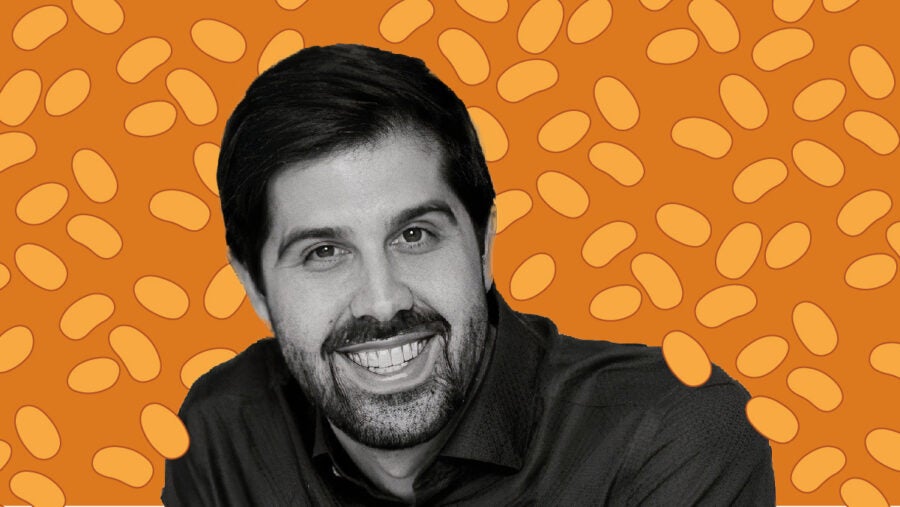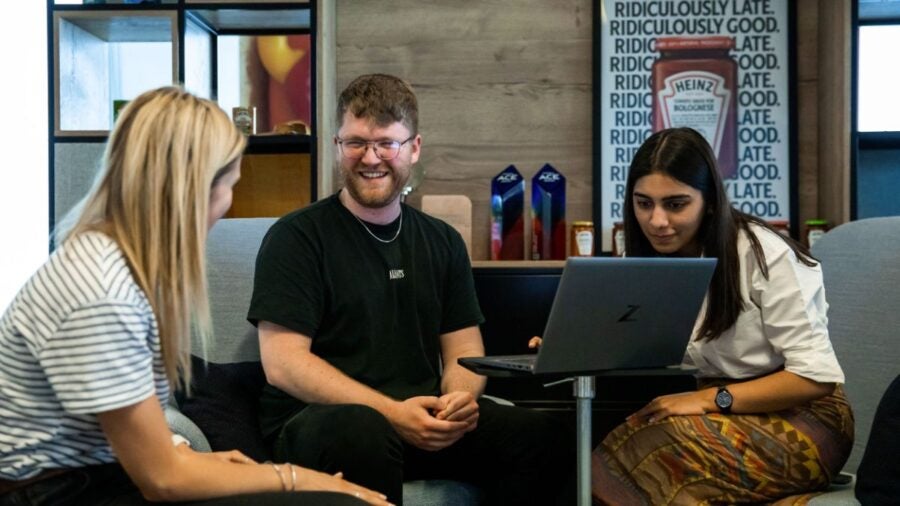
Bosses are finding gen Z a difficult cohort to manage. These zoomers (the eldest of which are 26) expect employers to have excellent ESG credentials. Meanwhile, businesses are reporting that gen Zers are finding the transition to the workplace a struggle, with three-quarters of managers claiming to find this generation more challenging to work with than their older colleagues.
But the international CPO of Kraft Heinz, Rodolfo Camacho, is not among them. He has a self-professed passion for managing gen-Zers, who he believes “are pushing us to be better”.
Gen Z as changemakers
As the youngest group in the workplace, Camacho thinks that gen Zers bring a particular perspective to the business. “They’re passionate. They bring new ideas and they ask tough questions,” he says.

Much of this comes from gen Z’s desire to work for employers that share their values – 48% would refuse to work for a company that doesn’t have clear environmental and social goals.
This is reflected in the fact that most of Kraft Heinz’s business resource groups – employee-led groups that help to promote gender equality, mental health and LGBTQ issues – are led by gen Zers.
“They don’t want to work for a company that focuses on making money. Gen Zers want to make an impact.”
Bringing through the next generation
Camacho has become familiar with the skills and capabilities of this generation through the business’s international trainee programme, which is a management fast-track for young people.
Kraft Heinz accepts up to 100 trainees on its annual programme, with starters joining from as far afield as Shanghai, Indonesia and Mexico. “I sit on every interview panel with the senior leadership team, so we meet all the trainees,” Camacho says. “We want our trainees to be the future leaders of this company, so we treat them accordingly.”
Gen Z want to effect change but they don’t always want to learn the boring stuff that helps you get there
The training programme allows recruits to gain experience in different functions, countries and locations – from brushing shoulders with the senior leadership team at HQ, to observing operations in its factories. The hope is that this will help to create a new generation of well-rounded managers.
“To do this you need to be open to taking a chance on people and expose them to new challenges,” Camacho adds. On occasions, this could involve transferring someone to a different country which is, he points out, a big benefit of an international business.
The opportunity to quickly progress in their career is another that appeals directly to this younger generation. “This anxiety for growth and development is higher than I’ve seen in other generations,” Camacho says. “They’re so driven by purpose that they don’t want to spend too much time at the beginning of their careers learning how to do the basics.”
But this eagerness to climb the career ladder can create problems. “They want to create change but they don’t always want to learn the boring stuff that helps you get there,” he adds.
Kraft Heinz’s ‘secret sauce’
Camacho has himself benefited from working in different functions. After starting out as a marketing intern in Madrid, he worked in trade marketing and in supply chain management, before settling into his HR role.
“My career is not linear at all,” he says. “My experience of several departments means I can consider things in my plans and my strategy that someone who has spent their whole career in HR would not.”
It has also given Camacho more credibility with his counterparts, he claims. “When I speak to our CMO about a structural change or the capabilities we need to develop, she trusts me because I have experience in her department.”
The same opportunities are given to others at the business too, but Camacho has ambitions to go further. Kraft Heinz is moving towards skills-based recruitment. Although other considerations, such as cultural fit, will still play a part in the final hiring decision, much more emphasis will be placed on having the prerequisite skills for a role, rather than prior experience.
If you focus on engagement levels, businesses can retain talent despite the tough market
“When the focus is on experience a person in HR doesn’t get to work in procurement – even though there are various roles in both fields,” Camacho explains. “So we’re deconstructing the role as a concept because there are often more similarities than differences across functions.”
Kraft Heinz is using AI to improve internal mobility. The organisation has invested in a talent marketplace platform that allows people to plan their career paths. After setting their sights on a position, the AI recommends internal vacancies which would help the person to develop the necessary skills to get there.
This deconstruction of roles could lead to job titles being removed from internal job adverts, Camacho adds. “It would require us to become more mature internally and externally to do that. But I can see that happening one day,” he says.
Camacho thinks that offering greater internal mobility has paid dividends in employee engagement. The business’s turnover rates average below 10% across the 40 countries Camacho heads up and is close to 5% in the UK.
“When you look at why people leave, it’s often because there was no opportunity for career advancement,” he says. “It shows that if you focus on engagement levels and make the right changes, businesses can retain talent despite the tough market.”
Overall, Camacho believes that this combination of opportunities to transition between departments, work abroad and to always have a sense of progression gives Kraft Heinz a unique employee value proposition. He adds: “It’s our secret sauce.”

Bosses are finding gen Z a difficult cohort to manage. These zoomers (the eldest of which are 26) expect employers to have excellent ESG credentials. Meanwhile, businesses are reporting that gen Zers are finding the transition to the workplace a struggle, with three-quarters of managers claiming to find this generation more challenging to work with than their older colleagues.
But the international CPO of Kraft Heinz, Rodolfo Camacho, is not among them. He has a self-professed passion for managing gen-Zers, who he believes “are pushing us to be better”.
